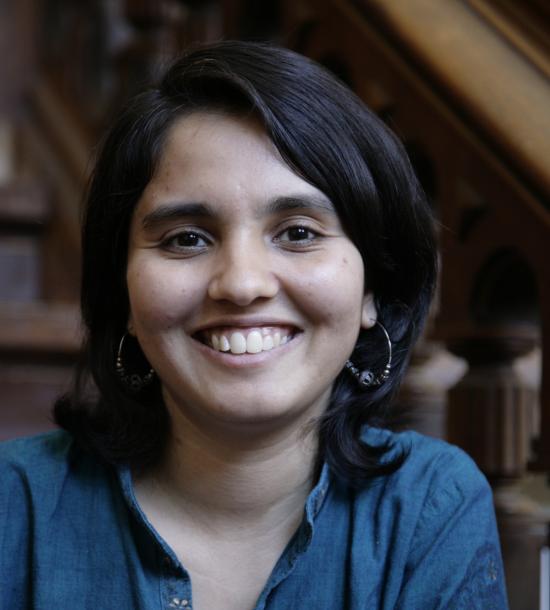I School doctoral student Janaki Srinivasan has been awarded the first Peter Lyman Graduate Fellowship in New Media. The fellowship, established in the memory of the late I School professor, provides a summer stipend to a UC Berkeley Ph.D. candidate to support the writing of his or her Ph.D. dissertation. The fellowship is administered by the Berkeley Center for New Media (BCNM).
Janaki Srinivasan is part of the School of Information's Information & Communication Technologies and Development (ICTD) program, and is particularly interested in the impact of rural computer centers in India. Before coming to the I School, Srinivasan received B.Sc. and M.Sc. degrees in physics, but along the way she became more interested in issues of technology deployment and the community's use of technology than in the technology itself. She hopes to use ethnographic accounts of IT-based development projects to understand how the political and social context of a community shape technology's effects.
The fellowship will support Srinivasan's work on her dissertation, "The Political Life of Information: Information and Development in India."
The Political Life of Information: Information and Development in India
The Information and Communication Technologies and Development (ICTD) domain has so far focused on how the "T" in "ICTD" shapes developmental change. While this is indeed an important aspect to study, it tends to assume that the "I" is relatively unproblematic. As development agencies are increasingly influenced by the idea that "information empowers," I challenge the universalistic connection between information, ICTs and empowerment, asking instead how and in what circumstances information has been empowering. I propose that different conceptions of information differ in their understanding of what information can "do", in their use of ICTs for information provision, and, consequently, in the opportunities for developmental change that they create. In my research, I focus on different conceptions of information — a dominant conception that treats information as an objective input with intrinsic value and alternative conceptions that perceive information as embedded in social relations from which information draws its value — and propose that these differences are critical to the functioning of information-based development initiatives. Using ethnographic modes of enquiry, I will study three initiatives from rural India that have a shared development objective, but use different conceptions of information. Based on my study, I will analyze the linkages between different conceptions of information and the nature of political engagement.
Professor Peter Lyman
Peter Lyman came to Berkeley in 1994 as the university librarian and joined the faculty of the School of Information in the same year. Lyman received his B.A. from Stanford University in philosophy, M.A. from Berkeley in political science, and Ph.D. in political science from Stanford. He died in 2007 after a long battle with brain cancer. Lyman's legacy includes research on online information, ethnographic analyses of online social relationships and communities, and helping to bring university libraries into the digital era.











